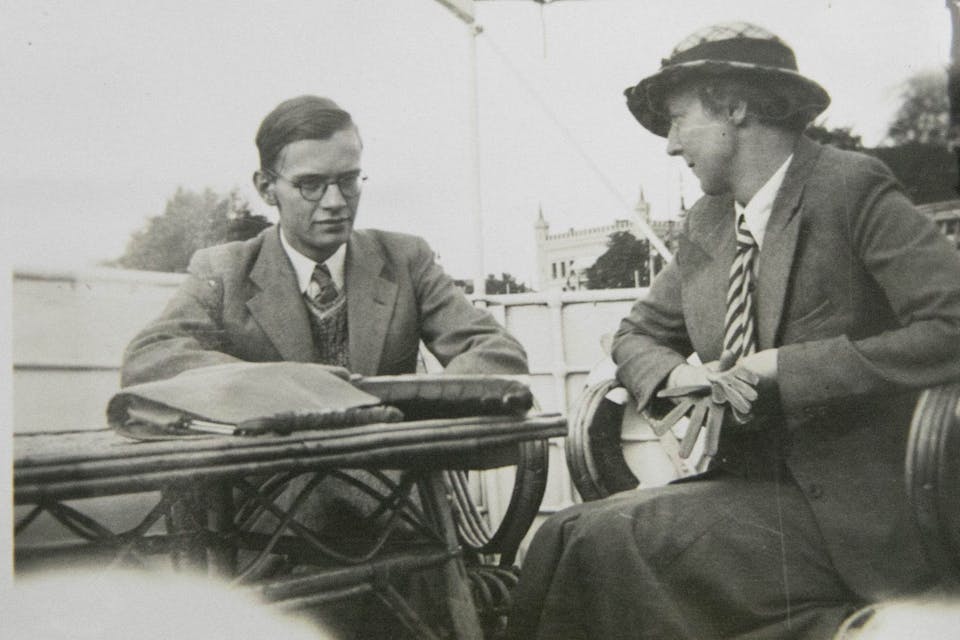
May 5, 2021
“There Are Too Many Jews on This Train”
A newly rediscovered 1938 novel offers one man's examination of how and why the single word “Jew” has come to define him.
What distinguishes The Passenger, the newly rediscovered 1938 novel by the German Jewish author Ulrich Alexander Boschwitz (1915-1942), from so many other fictional accounts of the Holocaust? To begin with, it is so viscerally absorbing that as I turned each page I shuddered, as if from the same chill breeze felt by the novel’s main character, the assimilated Jewish businessman Otto Silbermann, in his desperate attempt to flee Nazi Germany. Indeed, the gem-like precision of Boschwitz’s writing evokes, as few other books have, the anxiety and terror with which the once-prosperous Silbermann awakens to his new status as hunted prey in the Third Reich.
This stunning immediacy is no accident; it is a product of the book’s historical circumstances. Boschwitz opens his tale in Berlin, on the morning of November 10, 1938, the date now known as Kristallnacht, “the night of shattered glass”—the brutal anti-Jewish pogrom that swept through Germany at the instigation of the Nazis. Writing just after the event itself, and completing his manuscript within a mere four weeks, Boschwitz did not so much rip the details from the headlines—the wanton destruction of Jewish property, the seizure and transport to concentration camps of all Jewish males—as capture with precision the psychological splintering of whatever wistful hope of co-existence may have remained among a Jewish community already battered by Hitler’s increasingly vicious campaign against them.
By that time, Boschwitz, who was born in Berlin to a well-to-do Jewish father and Christian mother (according to Nazi law, he was thus Jewish, even if according to Jewish law he was not), had already woven his own route to safety, immigrating to Sweden (where his first novel, The People Outside, was published under a pseudonym in Swedish translation) and from there to Oslo, Paris, Belgium, and Luxembourg. Sources differ as to the exact dates of these comings and goings, and it’s unknown whether they were precipitated by a lack of official papers, the constantly changing political leanings of each country as war approached, plain bad luck, or most likely a combination—the very same factors that confronted Silbermann in his odyssey. And so it’s hardly a stretch to hear echoes of Boschwitz’s own wanderings in the rhythms of the wheels that transport the increasingly agitated Silbermann from one dead-end train or bus or smuggler’s route to another. And it’s equally impossible to shake the cruelly ironic undertow of war that engulfed both Boschwitz and his novel after he debarked to what he finally hoped was safety, in England, in early 1939.